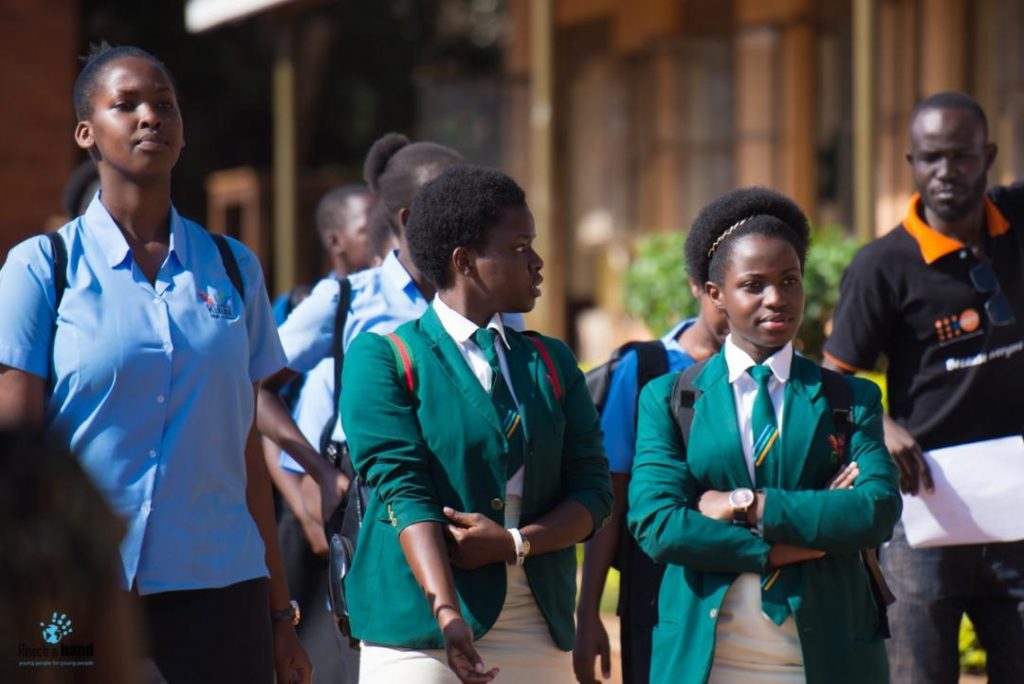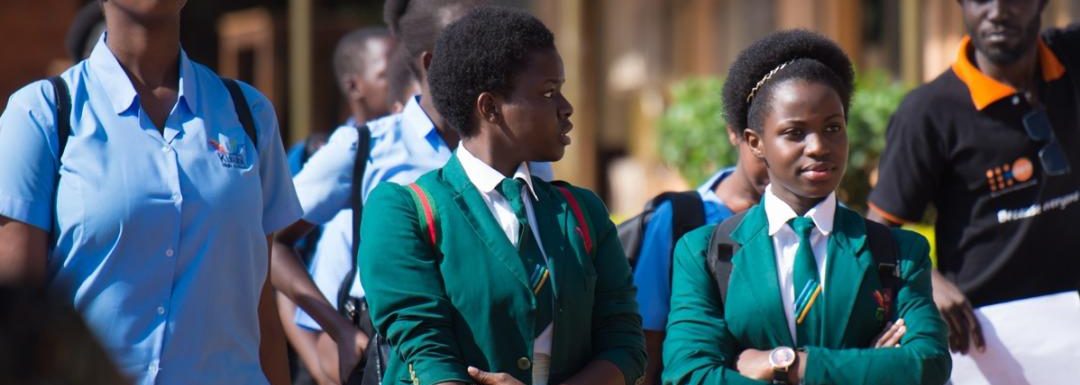
I want an Africa where everyone’s Sexual and Reproductive Health Rights are fulfilled and protected without any kind of discrimination. To be more specific, I want an Africa that thrives in Menstrual Health Management because it will contribute to Africa’s integral development. One of the aspirations under Agenda 2063 states, “An Africa whose development is people driven, relies on the potential offered by people especially its women, youth and caring for children.” This aspiration is well stated and can be achieved with collective endeavors. However, this might not be the case if Menstrual Health Rights are ignored or less prioritized.
The fact is if we are going to also rely on women and young girls’ effort in this journey of Africa’s development, we need to prioritize Menstrual Health Rights in Africa, not forgetting anyone who menstruates such as women and girls with disabilities. Achievement of these rights will allow young girls to stay in school and also motivate women to engage in communal based development. For so long, African and other world leaders have talked about empowering women and realizing young girls’ potential. This needs to be done comprehensively by tackling even the last issues that African governments tend to think of such as Menstrual Health Rights. It should be noted that maintaining health and hygiene during menstruation is critical for women and girls’ health, well-being, mobility and full participation in their societies. Poor menstrual management deprives women and young girls the potential to contribute positively to the development of their communities and attain personal growth. To ensure this they require access to information, supplies, facilities, policies and safe places to manage their menstruation.
This might seem abstract but in Eastern and Southern Africa region, many girls and women especially those living in poverty stricken areas or who have been affected by humanitarian emergencies, do not have access to appropriate information on Menstrual Health Management, or facilities and products that are effective, affordable and safe to use. Research carried out by Kenya Medical Research Institute (KEMRI) in Sub-Saharan Africa, shows that menstruation is seldom openly discussed in developing countries. The occurrence of sex in exchange for money to buy sanitary pads and dependency on boyfriends for sanitary pads is, for instance reported in two studies among rural Kenyan adolescents. Up to 87% of rural school girls from western Uganda used old clothes/rags as menstrual absorbents and yet these materials are infrequently changed, rarely washed, due to lack of soap and clean water, and not properly dried to re-use. In rural Kenya, 1 in 10 adolescents without access to sanitary pads also had no access even to materials such as old cloth, mattress pieces, tissue or other commonly cited menstrual absorbent alternatives, owning to household impoverishment. With such statistics just from Sub-Saharan Africa alone, how does Africa attain integral prosperity, peace and be driven by its own citizens, if women and girls struggle with period poverty, sexually transmitted diseases, menstrual stigma and so much more?
Furthermore, the baseless taboos and myths associated with menstruation simply make it harder for women and young girls to come out and explore their potentials. These taboos cause low self-confidence, stigma, stress, shame, isolation, discrimination and embarrassment. The traditional practice of exiling menstruating women from the family home is still widely practiced in rural areas, for example in northern Uganda, in Karamoja district a hole is dug under a tree where menstruating girls are expected to squat during the day while at night a hole is dug in the house where they are expected to pass their nights during periods. We saw how girls were banned from crossing Ghana River by the god of the river. (From BBC News World Africa 11.01.18) this meant that the girls’ right to education was denied at that time since most of them in that region crossed that river to go to school. In other words various agents of socialization have perpetuated these taboos framed around menstruation. In some religions, women are considered to be dirty, filthy and cannot even access their places of worship or engage in social gatherings, which is often where developmental issues are discussed. I therefore want an Africa that fights to dismantle all these myths because they render women and young girls powerless and voiceless; they damage self-confidence, well-being and health. Ignoring Menstrual Health Rights will only hold back Africa’s development. Integral development under Agenda 2063 includes everyone in Africa, development without women and young girls will not be development at all.
Menstrual Health Rights are directly linked to fulfillment of other human rights. It’s an essential requirement for African countries to harness a demographic dividend and advance to African Union’s Agenda 2063. This is why I want all Africans to play their part first by joining the Happy Flow Campaign, to sign the petition to the African Union Commission, East African Legislative Assembly and SADC Parliamentary Forum for Free Sanitary Wear in Africa (http://bit.ly/2RrB7My). This petition is a contribution to ongoing efforts at local, national, regional and international level to make Menstrual Health Rights and all Sexual and Reproductive Health Rights real in Africa.
To even have a greater societal impact, I want an Africa where young girls’ right to education is not compromised because of poor Menstrual Health. I want young African female leaders to be given platforms to speak and make impacts in society regardless of whether they are menstruating or not. I want leaders’ attitude towards the need for sanitary wear to evolve and be positive, not to reflect ignorant views such as Johannesburg Mayor Herman Mashaba who said, “The distribution of sanitary towels promotes pupils to think of sex.” I want an Africa where taboos and myths around menstruation are no more, through dissemination of appropriate messages for girls and women in relation to hygiene issues but also social norms. I want an Africa where girls and women have access to clean water and hygienic menstrual products especially in rural areas. I want an Africa where menstrual products are exempted from tax. Last but not least, I want an Africa with safe disposal for menstrual products. I want an Africa where menstruation is not considered a women’s issue, menstruation should matter to everyone, and I also want Africa to experience a wind of change where policy makers remodel their policy making structures. To achieve this, each African state needs to have at least 5 working policies in relation to achieving Menstrual Health Rights. Policy 1 in charge of education, awareness and learning, policy 2 in charge of water, sanitation and health, policy 3 in charge of innovation and sustainability, policy 4 in charge of policy and advocacy and policy 5 in charge of research and analysis. African leaders need to move out of their offices and away from paper work to the practical and ground level. African leaders need to be accountable; they need to fulfill their promises to us by coming down to our villages and working with us. With these working policies, I am positive that Africa will address menstruation issues that hinder women and young girls from taking part in developing their communities.


Leave a Reply